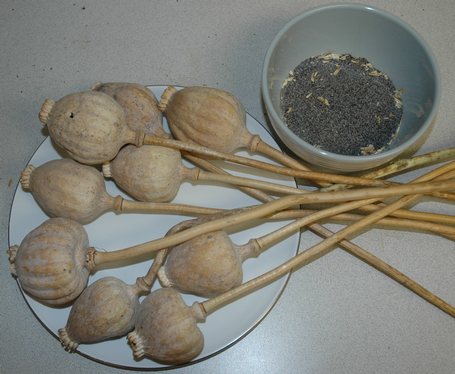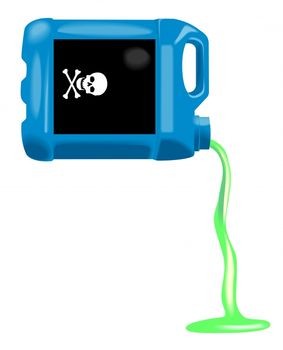China Daily reports tough penalties will be used to end entrenched abuses in the catering industry, such as the use of poppy capsules, a major source of many opiates, and industrial coloring agents, according to the top food administrator.
The State Food and Drug Administration will urge in its 2012 food regulation plan a crack down on the illegal use of additives.
Hotpot broth, beverages and seasonings will be key targets, as they are "danger zones" for food safety  incidents triggered by additives.
incidents triggered by additives.
Although some restaurant chains vouched for their food quality and said they have food safety specialists at every outlet, some hotpot stores still use poppy capsules, which can even lead to addiction, insiders said.
"It’s easy to obtain poppy capsules from familiar sources," said Fan Shengwu, deputy secretary-general of the Henan Provincial Restaurants Association. "Campaigns are only temporary remedies, and law breaking will resume."
The city of Leshan, Sichuan province, launched a campaign in 2008 to crack down on the use of poppy capsules after city authorities found 12 out of 401 restaurants used the substance in hot pots.
Technology and cash – higher rewards for whistleblowers – are good ways to punish law breakers, according to some food safety experts.
"Electronic monitors in restaurant kitchens can provide a panoramic view of the action," said Qiu Baochang, head of the lawyers’ group of the China Consumers’ Association.

.jpg) that the store sets. The report also said outlet personnel cooked and sold beef that had fallen on the outlet’s kitchen floor.
that the store sets. The report also said outlet personnel cooked and sold beef that had fallen on the outlet’s kitchen floor..jpg) Officials gave no further details of what kind of additives they were and it was not known whether they were toxic or added in excessive amounts. ??All the contaminated bean sprouts have been destroyed and several suspects detained after local authorities acted on a tip-off from a resident.
Officials gave no further details of what kind of additives they were and it was not known whether they were toxic or added in excessive amounts. ??All the contaminated bean sprouts have been destroyed and several suspects detained after local authorities acted on a tip-off from a resident. city of Yangjiang.
city of Yangjiang. disputes, the official Xinhua News Agency reported today.
disputes, the official Xinhua News Agency reported today. bent forward and facing downward in a cage, with only a carrot given as food.
bent forward and facing downward in a cage, with only a carrot given as food. face" will represent excellent, the "straight face" means good and the "unhappy face" indicates average, according the draft which is currently opening for public opinions.
face" will represent excellent, the "straight face" means good and the "unhappy face" indicates average, according the draft which is currently opening for public opinions..jpg)
 about 150 people ate together on Friday evening in a remote village in Pishan county in the western region of Xinjiang.
about 150 people ate together on Friday evening in a remote village in Pishan county in the western region of Xinjiang. treated the sick at Renmin Hospital. Doctors speculate that E. coli could be the cause.
treated the sick at Renmin Hospital. Doctors speculate that E. coli could be the cause. water. The farms belong to Henan Huaying Agricultural Development Co Ltd.??
water. The farms belong to Henan Huaying Agricultural Development Co Ltd.??